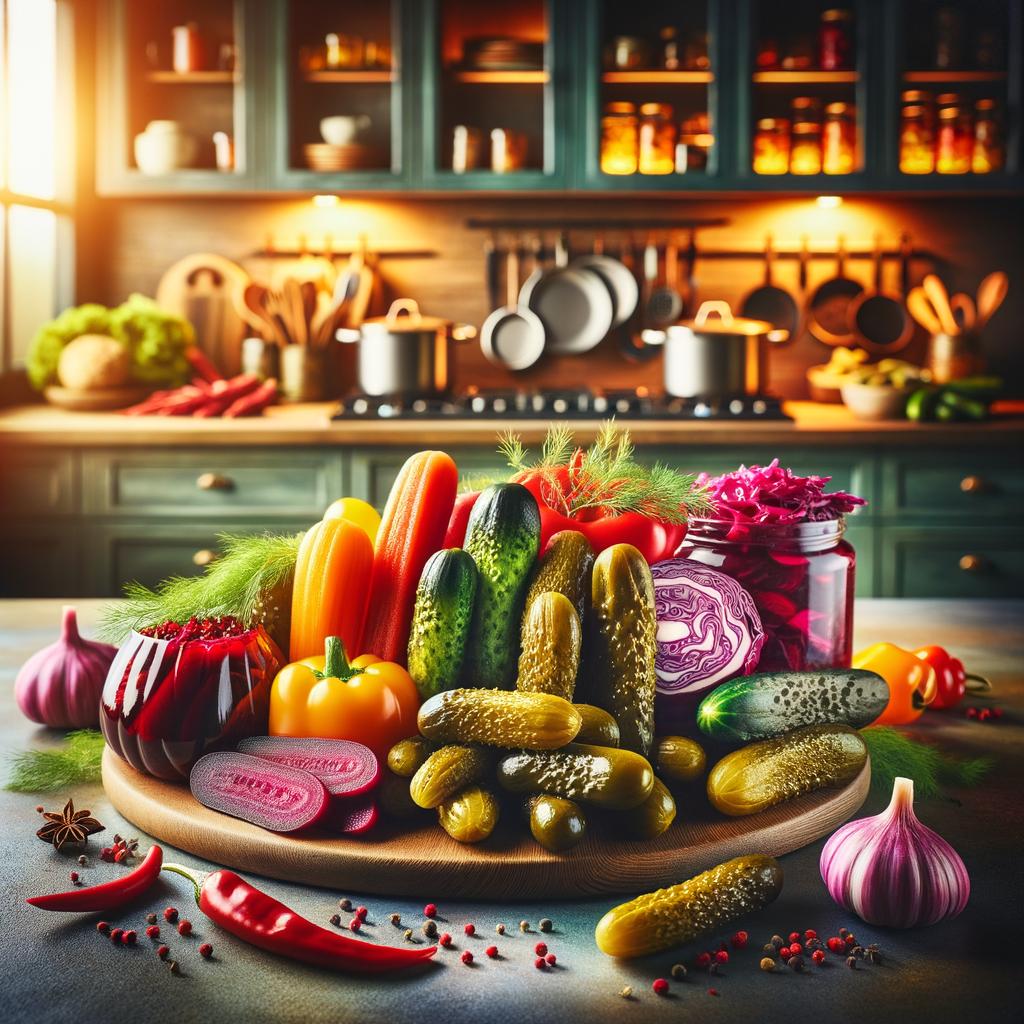Pickled Vegetables

Description
Pickled vegetables, the delightful, tangy offerings of the culinary world, are a feast for the eyes and the palate. They come in a vibrant array of colors, from the deep purple of pickled beets to the bright yellow of pickled peppers, and their texture is a delightful balance of crunch and chewiness. The flavor profile is a complex symphony of sour, salty, and sometimes sweet, with a hint of the original vegetable's taste peeking through. The unique characteristic of pickled vegetables is their ability to retain the fresh crunchiness while absorbing the flavors of the pickling brine, setting them apart from their fresh and cooked counterparts.
Primary Uses
Pickled vegetables are a versatile ingredient used in a multitude of cuisines worldwide. They are a key component in Korean cuisine as kimchi, in Eastern European dishes like sauerkraut, and in American Southern fare as pickled okra or green tomatoes. They can be eaten straight from the jar, added to sandwiches for a zingy crunch, or used as a garnish in cocktails. Beyond their culinary uses, pickled vegetables have been used for their probiotic properties, aiding digestion, and their long shelf life, making them a staple in food preservation.
History
The history of pickled vegetables is as rich and varied as their flavors. The process of pickling was developed thousands of years ago as a means to preserve food for long journeys or through harsh winters. Cleopatra claimed that pickles contributed to her beauty, and Julius Caesar fed them to his troops believing they provided strength. The tradition of pickling has evolved over time, with each culture infusing their unique blend of spices and flavors into the brine. In the American South, for instance, a Christmas pickle hidden in the tree is a fun holiday tradition.
Nutritional Information
Pickled vegetables are a nutritional powerhouse. They are low in calories and a good source of dietary fiber. The pickling process can enhance the availability of some nutrients like Vitamin B in cucumbers. They are also rich in probiotics, beneficial bacteria that promote gut health. However, they can be high in sodium, so they should be consumed in moderation by individuals monitoring their salt intake. Compared to fresh vegetables, they have a similar nutritional profile but with added probiotics and a longer shelf life.
In the end, pickled vegetables are not just a food item, they are a testament to human ingenuity in food preservation, a bridge between cultures, and a flavorful addition to our meals.

